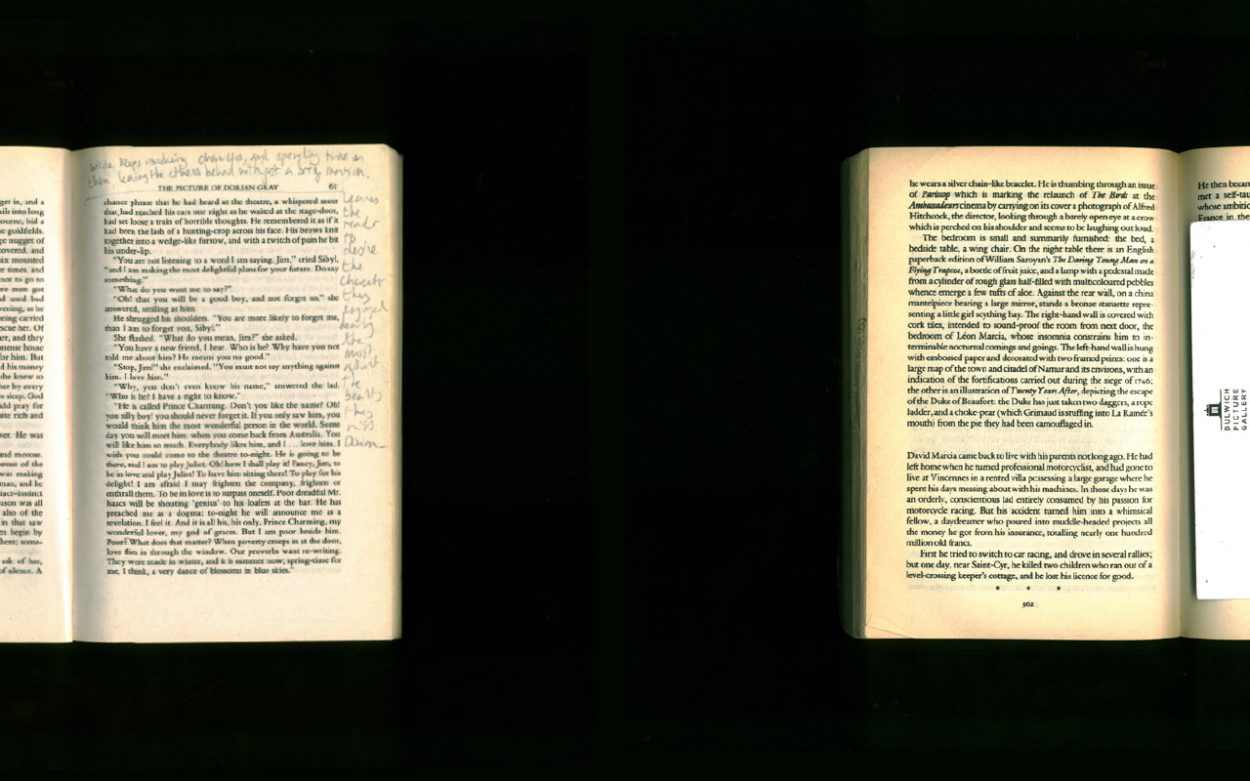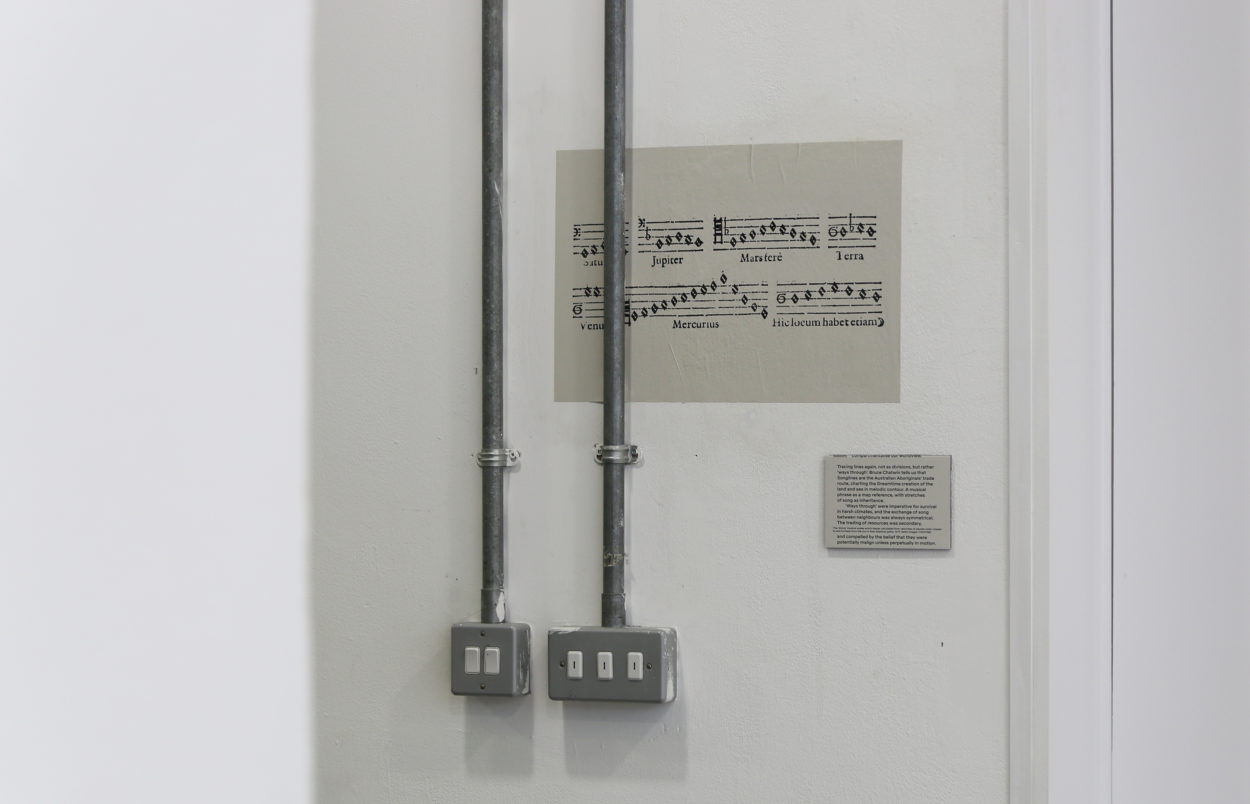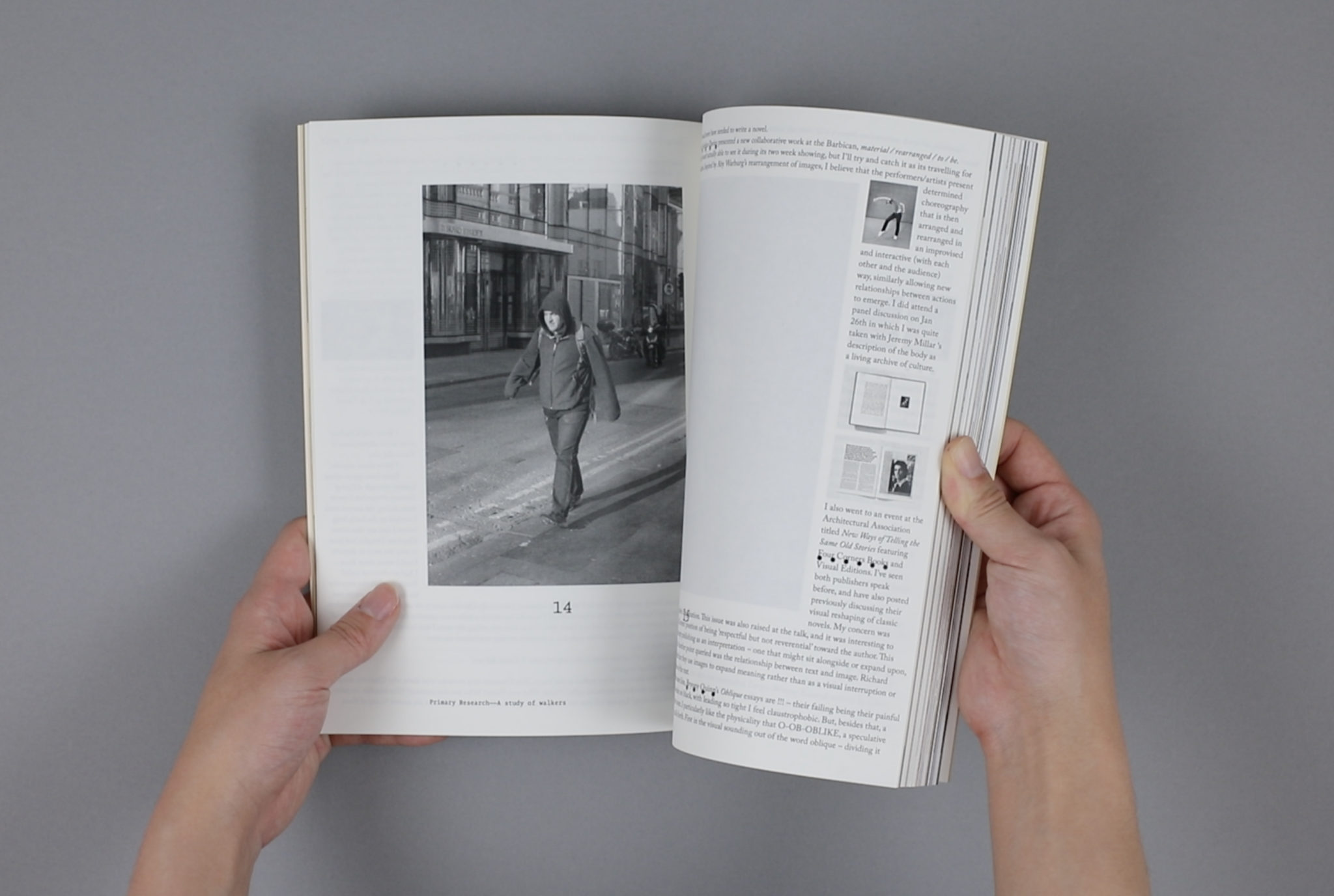Published
A digressive practice
This statement of intention, written for assessment purposes during post-graduate design research, lived on a website that formed the practical outcome. The website was the first use-case of adopting an index, as its means of navigation, to organise knowledge.
I am an Australian designer based in London. I am interested in graphic design: as a form of critical analysis and inquiry; applied to everyday social conditions and values; and unfolding as artefacts and experiences. My work is informed by a curiosity for people and place, language and landscape.

Common Practice presents an intention, a methodology and a terrain. It is a proposition for a design studio and ongoing research concern which:
- believes that ethics and aesthetics are one; (1)
- entails locating, and challenging the conditions of our current realities while creating alternative conditions that allow for new realities to happen; (2)
- recognises that an important component in building consciousness is time; (3)
- seeks to embrace forms of thinking and practice that can help bring balance to the speed at which we encounter the world, as well as to how we position ourselves within it; (4)
- celebrates public life and solitary life; (5)
- supports and develops acts toward a more equal and sustainable world; (6)
- speculates how designers might avoid the conventional choice between financial stability and the production of meaningful work; (7)
- is shaped by the belief that being in motion and in relation, and the application of embodied, observational skills spark alternative, sensory and inclusive routes of knowledge making; (8)
- is materially unfaithful and unapologetically optimistic; (9)
- offers another way of telling. (10)
- Jack Self (interpreting Emmanuel Kant)
- Ana Paula Pais
- Paulus Dreibholz
- Ana Paula Pais
- Rebecca Solnit
- Ruben Pater
- Brave New Alps
- Yeb Wiersma
- Erik Benjamins
- John Berger
This montaged manifesto, in the vein of Walter Benjamin’s Arcades Project (11), reveals key practice-based influences and the working methodology of digression and association. The methodology has been adopted as a means of alternative engagement within accelerated culture. This position is informed by the ideas of cultural theorist Paul Virilio, writer Rebecca Solnit, and curators Jeremy Millar and Michiel Schwarz. Hallmarks of acceleration, propelled by technology and economic policy, are dematerialisation and productivity. In contrast, digression and association make room for the intuitive, inconsequential and informal. They are evident in the literary experimentation of James Joyce and Virginia Woolf whose ‘stream of consciousness’ style in Ulysses (12) and Mrs Dalloway (13), respectively, unfold through the meanderings of their protagonists.

The framework of the research uses association in an attempt to shift from critique to proposition. Three ways of walking – roam, traverse and trespass – prompt us to rethink relations to three realms significantly impacted by acceleration – self, labour and public space. This framework is applied within and outside of design practice. Within practice it informs questions of how (processes and organisation) and what (client/sector and disciplines). This is research for design, and the audience is primarily designers and socio-political actors. Outside of practice, these propositions will be explored through the digressive methods of writing, walk-led conversations and group discussions manifesting as workshops. This is research through design and the audience casts wider to potentially include students, educators, business people, policy-makers, economists, theorists, curators, publishers, architects, urban planners, sociologists, artists and everyday citizens.

This momentarily vacant site, commonpractice.info, marks the terrain of anticipated dialogue. It is not a conclusive outcome. Rather, the process of thinking through making will be ongoing, refining an accessible, real-time and transparent site of publishing. Designed in collaboration with Jake Dow-Smith, it is navigated through an index that will expand with new content and is, therefore, fundamentally responsive. The initial intent of the website is to formalise and legitimise existing research to engage future collaborators and/or potential funding partners.
•
References
- Fuller, J. and Self, J. (2017) Scratching the Surface [Podcast]. 26 July. Available at: www.scratchingthesurface.fm/post/ 163433522135/37-jack-self (Accessed: 17 August 2017)
- Pais, A. P. and Strauss, C. (2017) Slow Reader: A Resource for Design Thinking and Practice. Amsterdam: Valiz
- Dreibholz, P. (2016) Reading Form: A Call for Conscious Design. Vienna: Gaffa Editions
- Pais, A. P. and Strauss, C. (2017) Slow Reader: A Resource for Design Thinking and Practice. Amsterdam: Valiz
- Solnit, R. (2017) Harper’s Magazine. Available at: www.harpers.org/archive/2015/10/the-mother-of-all-questions/3 (Accessed: 24 November)
- Pater, R. (2017) Untold Stories. Available at: www.untold-stories.net (Accessed: 24 November)
- Brave New Alps (2017) Brave New Alps. Available at: brave-new-alps.com (Accessed: 24 November)
- Wiersma, Y. (2017) Yeb Wiersma. Available at: www.yebwiersma.com (Accessed: 24 November)
- Benjamins, E. (2017) Erik Benjamins. Available at: www.erikbenjamins.com (Accessed: 24 November).
- Solnit, R. (2017) Harper’s Magazine. Available at: www.harpers.org/archive/2015/10/the-mother-of-all-questions/3 (Accessed: 24 November)
- Benjamin, W. and Tiedemann, R. (2002) The Arcades Project. Cambridge: Harvard University Press.
- Joyce, J. (1960) Ulysses. London: Bodley Head.
- Woolf, V. (2004) Mrs Dalloway. London: Vintage.